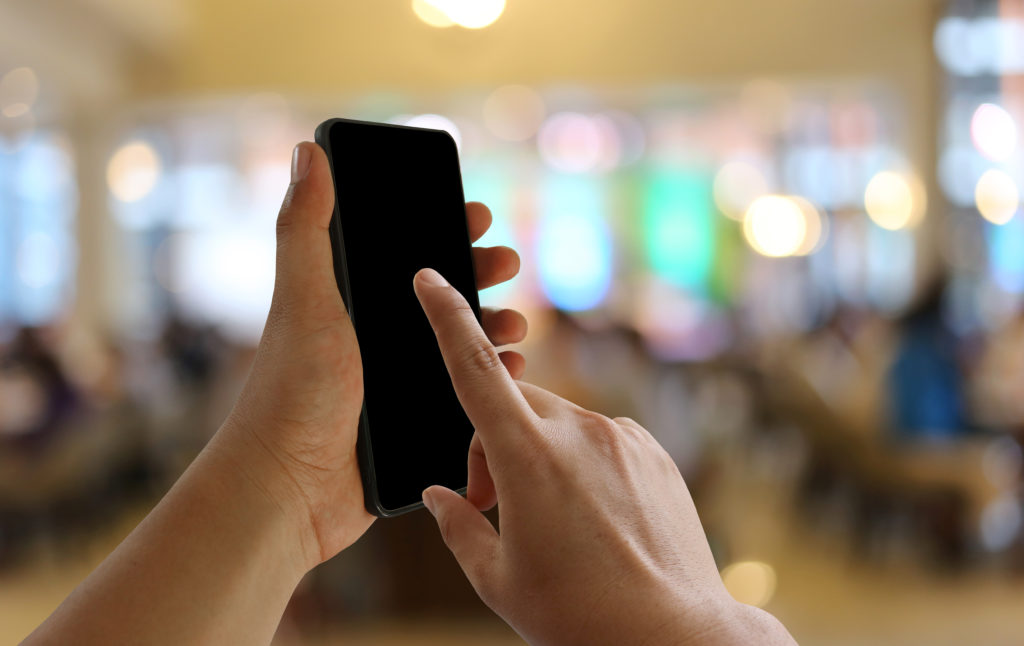
So much has been said about smartphone usage in modern times. This ranges from some who say that they are destroying our brain to others who see they benefit our cognition by outsourcing cognitive heavy tasks like remembering lists of phone numbers – thereby freeing up memory storage for other stuff.
A bunch of research does point to there being connections between smartphone usage and a decrease in wellbeing and this is what researchers at Ruhr-University Bochum wanted to know more about.
They recruited 619 people and they were randomly assigned to three groups.
-
- One group abstained from any smartphone usage for 7 days.
- The second group reduced their smartphone usage by one hour per day.
- The third group carried on as usual.
The then followed up one month and four months later checking with continued smartphone usage and health and wellbeing questions also. What did they find?
Those who reduced smartphone usage had better health and well-being, including external measures such as how much they exercised or smoked. This effect could be measured after four months. However, what was interesting was that the group that reduced smartphone usage rather than abstained showed the largest and most stable results.
So, it appears that there is a sweet spot and reducing smartphone usage only, is the best strategy for higher health and well-being!
Reference:
Julia Brailovskaia, Jasmin Delveaux, Julia John, Vanessa Wicker, Alina Noveski, Seokyoung Kim, Holger Schillack, Jürgen Margraf.
Finding the “sweet spot” of smartphone use: Reduction or abstinence to increase well-being and healthy lifestyle?! An experimental intervention study..
Journal of Experimental Psychology: Applied, 2022
DOI: 10.1037/xap0000430
More Quick Hits
Your brain on near-death experiences
Near-death experiences have fascinated many people ever since they have been reported. And these experiences guide our view of how we die: the memories of your life passing in front of your eyes, the tunnel of light, the floating movement towards a bright light....
Social networks grow your brain
The headline is a bit “click baity” but it is what a group of researchers found. To be more specific they found in macaques (cute monkeys) in the wild that having more grooming partners grew different regions of the brain. Grooming is the primate version of having a...
What do creative brains look like?
We’d probably all be happy to be a bit more creative — though research into our own opinions show that many people do actually consider themselves to be above average in creativity. An obvious self-bias. This is where scientists who study creativity come in and find...
New gender biases discovered
There have been many studies on gender biases, and I have followed, written, and spoken about many of these biases over the years (over a decade actually) but two studies have just come out that caught my eye. One out of New York University focused on gender natural...
Growth of your brain over your life
So, we all know that our brain grows very quickly as babies and children and then after a certain age, younger than some of us may like to think, there begins a slow decline. But precisely what and how is the question. Well, this is a question that an international...
How to reduce loneliness
I have reported multiple times on loneliness during the pandemic – mostly because interest and research into loneliness has taken a large uptick. I have also reported on how to combat this and was happy to see that a piece of research just out proved what I had...
COVID on the Brain
Many COVID-19 patients have reported various neurological symptoms – the well-known brain fog, but also headaches and decreased cognitive function over months and extended periods of time. This even without serious infection or hospitalization. The research seems to...
Life satisfaction after work related to personality traits
As many of you know I have done plenty of work into personality and so found this study interesting. Dusanee Kesavayuth of Kasetsart University in Bangkok, Thailand analysed data from 2,000 adults aged between 50 and 75 in the British Household Panel Survey and found...
Unique regulation of brain in yoga practitioners
Quick HitsDaily brief research updates from the cognitive sciences es, you yoga practitioners knew you were special and here is the science to prove it! In this older study I came across (2018) participants were recruited to see how they dealt with...
Neurodivergence and the lonely brain
Quick HitsDaily brief research updates from the cognitive sciences eurodivergence is term that describes those that are not “neurotypical” such as those with autism and ADHD. In the surge of research into loneliness spurred by the pandemic it has...










